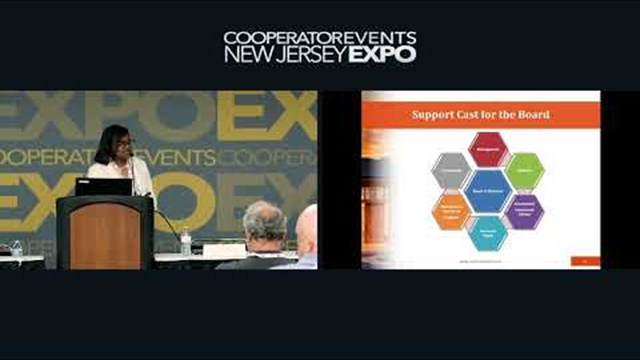
Q. I live in and own a condo in a four-unit condo building. One unit is occupied by the president and treasurer of the board of directors. I am away for a few months, and gave permission to a dear friend to use my condo for a few days. The president and treasurer flipped out and told my friend that she may not enter my condo, or they will call the police. I was FaceTiming my friend during this encounter and telling her to go in and not be bullied. The president told me the bylaws say that I need to ask for written permission from the board to allow a friend to stay in my condo. Is this ridiculous? Is this a power trip? We have no association, just us four units. What should I do?
—Needing Answers
A. “The answer to your question will be in your condominium association’s governing documents,” says attorney Anne P. Ward, of counsel in the Newark office of law firm Ehrlich, Petriello, Gudin & Plaza. “To begin, you should be aware that all condominiums are governed by the New Jersey Condominium Act, 46:8B-1 et seq (‘the Act’). An ‘association’ is defined in the Act as ‘the entity responsible for the administration of a condominium, …’. A condominium is created by the recording of a Master Deed. The Master Deed creates an association for each condominium and vests that association with responsibility for the management of the condominium property. By definition, the condominium property includes the common elements, limited common elements, and condominium units. (The Act, N.J.S.A. 46:8B-3(i); N.J.S.A. 46:8B-12.) While a condominium unit is owned in fee title, an association may still impose reasonable restrictions on its use. (The Act, N.J.S.A. 46:8B-15.)
“The bylaws of an association are part of the Master Deed. (The Master Deed and the bylaws are generally referred to as the ‘governing documents.’) It is the bylaws which govern, in detail, the daily administration and management of the condominium. (The Act, N.J.S.A. 46:8B-13.) Moreover, the bylaws empower the association, acting through its board of directors (‘the board’), to adopt rules and regulations governing use of the condominium property including, to an extent, private units.
“I have never seen bylaws that do not provide that all owners of a condominium unit automatically become members of the association; they are, therefore, automatically subject to the association’s rules and regulations.
“Moreover, the foregoing applies to an association irrespective of its size. While your condominium may only have four units, it must have an association. It also must have bylaws which govern the use and operation of the common elements, limited common elements, and condominium units. To state the obvious, this would include your unit. Restrictions on the use of units are lawful if they are reasonable and in furtherance of lawful purposes of the Act and the condominium’s governing documents.
“Please keep in mind that an association has a fiduciary duty to ‘exercise its powers and discharge its functions in a manner that protects and furthers…the health, safety, and general welfare of the residents of the community.’ (The Act, N.J.S.A. 46:8B-14(j).) It also has a duty to preserve and protect the common elements and areas for the benefit of all its members. (The Act, N.J.S.A. 46:8B-146 and (c).)
“As a result, many boards adopt rules regulating the presence of third parties on the premises. Some simply prohibit the rental of units. Almost all associations curtail the duration of rentals in order to prevent transient and hotel type arrangements. In addition, the condominium property is also subject to local zoning laws which probably limit the number of persons permitted in a unit.
“Such limitations are adopted for two reasons: to promote the association’s financial soundness, and residents’ safety. Many lenders will not loan to purchasers unless a condominium caps the percentage of permissible rentals. Owners who reside in their units (as opposed to those who use them only as investment vehicles), are generally considered to be more protective of their property and more likely to properly maintain the condominium. Limiting condominium use to owners reduces the presence of strangers, and prevents transients from using the property. Many associations are of the opinion that such restrictions promote the safety and security of residents and the condominium property.
“A purchaser of a condominium unit would normally receive a copy of the bylaws upon purchase of the unit. The rules and regulations adopted by an association may be included in the bylaws, although normally they are not recorded with the governing documents. Therefore, you need to review the bylaws and rules and regulations to learn if there are any limitations on the use of your condominium unit with respect to third persons who are not members of the association. They will tell you if the board’s written permission is required prior to loaning your unit to a friend in your absence. If you do not have a copy of the bylaws, ask the president of the board for a copy and also ask for a copy of the rules and regulations. If need be, the County Clerk will have a copy of the association’s recorded documents.
“If written permission is required, it cannot be withheld unreasonably by the board and you are entitled to a written explanation for the board’s refusal. If such a rule has been adopted, and if you dispute its validity or its wisdom, you can request an alternative dispute resolution (ADR) hearing. New Jersey law requires that each association make available an ADR to mediate ‘housing-related’ disputes between the association and owners. (The Act, N.J.S.A. 46:83-14(k).) The New Jersey Department of Community Affairs may fine an association for failure to make available an ADR.”









Leave a Comment